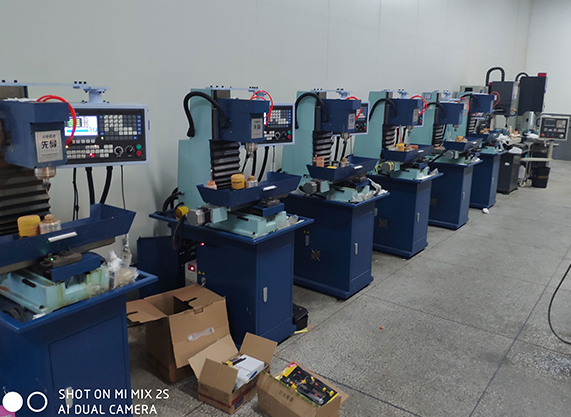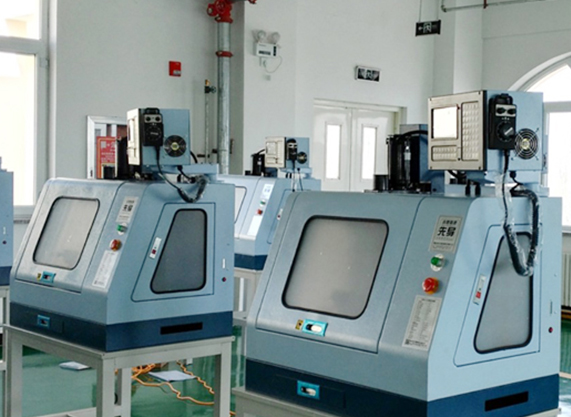
Add Date: 2024/5/21 Views: 538
#CNCEDU #LearnCNC #makers #Desktop mini CNC milling machine #Teaching CNC machine tool
The machining methods of CNC machine tools usually include the following: 1 Rough machining: used to quickly remove a large amount of excess material from the surface of the material for subsequent precision machining. 2. Fine machining: After rough machining, the parts are finely machined to meet the required dimensions and surface quality requirements. 3. Milling: Cutting, slotting, or shaping materials by rotating the tool. 4. Drilling: Use a drill bit to treat holes in the material. 5. Turning: Using a turning tool to gradually remove unnecessary parts from rotating materials, in order to obtain the desired shape and size.

The processing methods of CNC machine tools are indeed diverse, and each method has its specific application scenario. The following are detailed explanations of the processing methods you mentioned:
1. Rough machining:
Purpose: The main purpose is to quickly remove most of the excess material on the workpiece, laying the foundation for subsequent precision machining.
Features: Large cutting volume, fast machining speed, but relatively low machining accuracy and surface quality.
Application: Usually used in the early stages of part processing, to prepare a good processing foundation for subsequent processes.
2. Precision machining:
Purpose: After rough machining, further improve the machining accuracy and surface quality of the workpiece to meet the design requirements.
Features: Small cutting amount, slow processing speed, but high accuracy and good surface quality.
Application: Used to complete the final shape and size of parts, ensuring that the parts meet usage requirements.

3. Milling:
Principle: Using a rotating milling cutter to cut the workpiece, it can process flat surfaces, grooves, etc.
Features: High cutting efficiency, wide processing range, suitable for processing various shapes.
Application: Widely used for the processing of complex parts such as molds, fixtures, and boxes.
4. Drilling:
Principle: Use a drill bit to drill circular holes on the workpiece.
Features: Simple operation and high processing efficiency, but the accuracy and surface quality of the holes are limited to some extent.
Application: Used for processing holes of various diameters and depths, such as bolt holes, positioning holes, etc.
5. Turning:
Principle: When the workpiece rotates, the turning tool moves along the axis direction of the workpiece to cut it.
Features: High machining accuracy, good surface quality, suitable for machining the outer circle, end face, etc. of rotating parts.
Application: Widely used for machining shaft and disc parts.

In addition to the above processing methods, CNC machine tools also have other processing methods, such as grinding, wire cutting, electrical discharge machining, etc. These processing methods have their own characteristics and are suitable for different processing needs. When choosing a processing method, it is necessary to comprehensively consider factors such as the material, shape, size, and processing requirements of the workpiece.